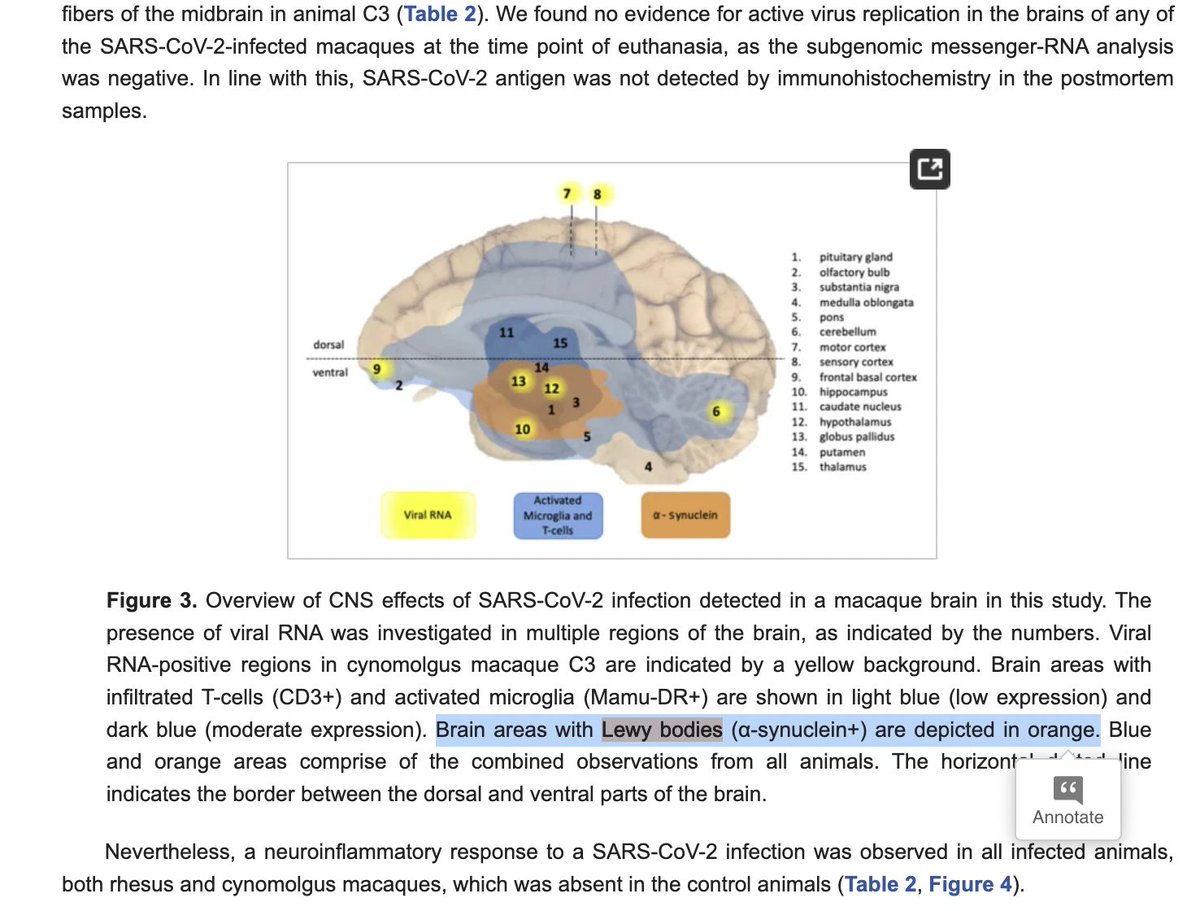
Neuropathological changes with pronounced neuroinflammation have been described in individuals after lethal #COVID19, as well as in the CSF of hospitalized patients with neurological complications. mdpi.com/1579664 #mdpiviruses via @VirusesMDPI
To assess changes can occur POST #SARSCoV2 infection, leading to mild-to-moderate disease, we investigated the brains of four rhesus and four cynomolgus macaques after pulmonary disease and without overt clinical symptoms.
Postmortem - Infiltration of T-cells and activated microglia in the parenchyma of all infected animals, even in the absence of viral antigen or RNA. Moreover, intracellular α-synuclein aggregates were found in the brains of both macaque species.
It indicates the virus’ neuropathological potential and should be considered a warning for #longterm health risks, following SARS-CoV-2 infection.
Macaques got #Lewybodies from #SARSCOV2 infection, and infection caused T cells to infiltrate the brain Parenchyma.
Macaques got #Lewybodies from #SARSCOV2 infection, and infection caused T cells to infiltrate the brain Parenchyma.
Reveals that #postCOVID #LongCovid and brain function disorders may happen leading to concern for both the sufferrer and health care workers in near future.
• • •
Missing some Tweet in this thread? You can try to
force a refresh




